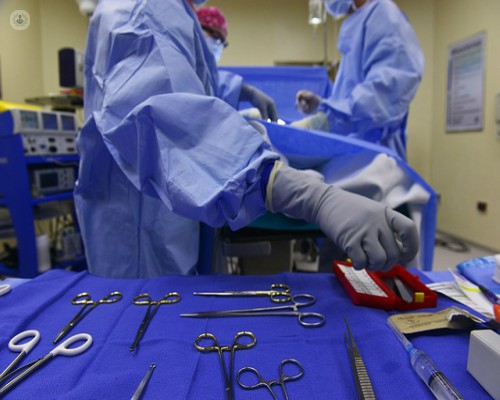Transplants: uses chronology, complications and advances
Written by: A transplant involves the change of an organ that does not work properly by another that does. For this, it is necessary to obtain the organs, either from a deceased person or, in some cases, from a living donor who donates altruistically.
A transplant involves the change of an organ that does not work properly by another that does. For this, it is necessary to obtain the organs, either from a deceased person or, in some cases, from a living donor who donates altruistically.
The organs that can be transplanted are the heart and lungs for the chest , and the liver , pancreas , small intestine and kidney for what the abdomen does. All of them currently offer excellent results and a great improvement in the quality of life of the patients.
Even so, one of the transplants with the greatest impact is the liver , since there is no alternative therapy when there is terminal liver failure or liver cancer.
There are complications that can affect the success of a transplant. The most feared among them is that the transplanted organ does not work properly because of the damage produced during the preservation period. Other complications can be seen in the surgical technique or the rejection of the grafts. To avoid the second, recipients must take immunosuppressive medication permanently, and this can also have adverse effects.
Timeline of a transplant
- Evaluation of the donor potential. Do you meet the criteria established for the donation? Is it suitable? Are there any contraindications?
- The most suitable receiver for each organ is sought. The transplant coordinators contact the different transplant teams.
- The organs are removed and the receptors are prepared in the corresponding hospital.
- The extraction equipment moves to perform the extraction. This process has to be very coordinated, since it involves different teams. In the event that the organ is not accepted, the team in charge of the recipient is notified to stop the transplant. If accepted, the recipient has just been prepared and the transplant surgical team is activated.
- After surgery, the recipient goes to the ICU for a few hours or days (depending on their condition) and then in a conventional room. The first days the function of the transplanted organs is monitored and the immunosuppression protocols are started to avoid rejection. We also fight against infection and try to avoid possible vascular thrombosis.
- The pre-transplant status of the patient determines to a large extent the speed of recovery. After discharge, you should perform a systematic control of the receiver and modify your medication.
Advances in transplants
Transplantation is a technique that has been developing for 50 years and, although there are currently fewer notable milestones because it is already a very safe and effective solution, it is constantly evolving. For example, in the case of liver transplantation, the new antivirals against the hepatitis C virus allow a very important improvement in infected patients after transplantation.
The problem of transplantation remains the lack of donors regarding the great need. With the aging of the population, donors have a more advanced age each year and, in addition, it is necessary to use donors who may have died due to cardiocirculatory problems, which means that their organs may be in worse quality.
Even so, work is being done on techniques to improve the quality of organs through better preservation. Another promising line of work in transplants is the induction of tolerance and the study of biomarkers to reduce or avoid immunopresor treatment and its associated toxicity.
In the field of implants, Spain is an example and a world leader. This is due, in large part, to the establishment of a national transplant organization, with a team of professionals that structure the donation process and the great response of the population. On the other hand, the medical and surgical teams dedicated to the process also perform a high quality work.



